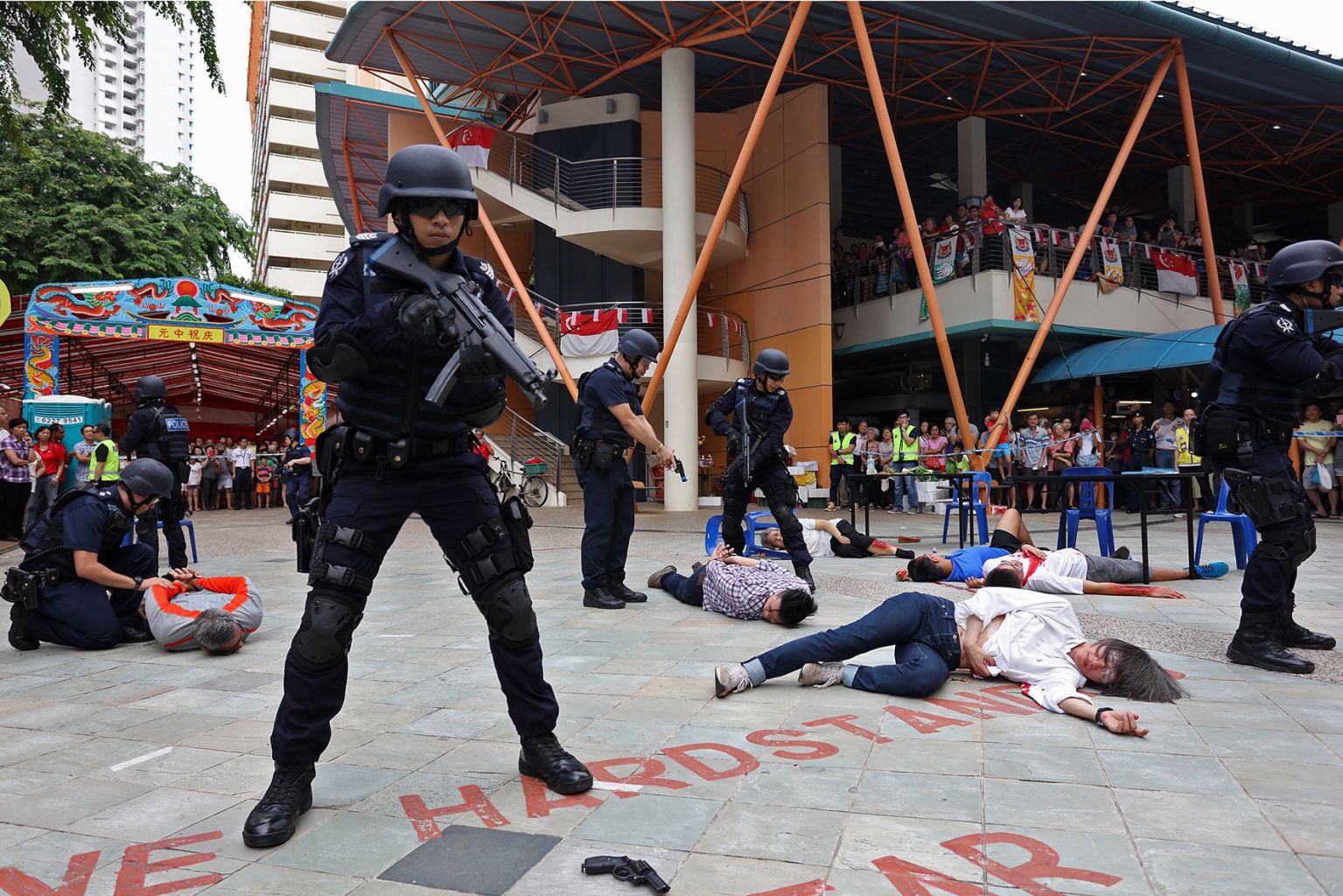Parliament: 3 proposals in Bill to give police special powers to deal with terror attacks
Sign up now: Get ST's newsletters delivered to your inbox

Officers from the Emergency Response Team, Tanglin Division and Ground Response Force from Toa Payoh Neighbourhood Police Centre during a counter-terrorism exercise, on Aug 6, 2016.
PHOTO: ST FILE
Seow Bei Yi
Follow topic:
SINGAPORE - It may soon become an offence to broadcast information about ongoing police operations during incidents like a terror attack - if the police issue a stop order.
The police may also be allowed to take down or disable any drones, for security reasons.
These are among proposals found in a new Public Order and Safety (Special Powers) Bill, introduced in Parliament on Tuesday (Feb 27).
As part of the new Bill, the existing Public Order (Preservation) Act, enacted in 1958 to deal with large-scale riots, will be repealed.
These are some features of the new Bill:
1. Halting communication of pictures, videos, text and audio
To avoid compromising their ongoing operations, the police may issue a communications stop order.
This means people are required to stop filming or spreading videos and pictures of an incident area, and to stop communicating text or audio messages about security operations happening there. Failure to comply, after the order is issued, will be an offence.
The move follows terror incidents abroad, in which live media broadcasts revealed tactical information to terrorists, placing officers and hostages at greater risk, said the Ministry of Home Affairs (MHA).
The public will be informed of the stop order at the scene, through the print and broadcast media, as well as via social media platforms.
2. Powers to stop communications
A police officer may also direct people to destroy a film, picture or message immediately, or to surrender the device it was recorded on.
Individuals may also be required to inform the police of whom they sent the messages to, or how they received it.
3. Expanded powers to take down or disable drones
The police will also be able to take down or disable any unmanned aircraft and autonomous vehicles in and around an incident area - regardless of their intention or activity.
MHA said this is because they can be used for surveillance or as weapons by terrorists.
Current powers to stop drones apply to only devices that are clearly posing a threat to public safety and security.
4. Directing building owners to close premises, give information
The Bill will also allow the police to direct owners of buildings within an incident area to take certain actions, to manage public safety, said MHA.
These could include closing their premises, restricting entry or exit, or providing information such as floor plans.
5. Questioning of individuals
When authorised, police officers will be able to stop any individual in a target area for as long as necessary to question him, and it will be an offence not to comply. The maximum fine is $20,000 and maximum jail term is two years.
The aim of questioning is to ascertain a person's identity and movements, or their knowledge of a serious incident.
6. Civilians may be empowered to help
Under the Bill, a police officer can also direct other law enforcement officers and civilians to aid him, and these civilians will have some special powers, such as to man a cordon.
However, their powers will be limited and they cannot use lethal force.

